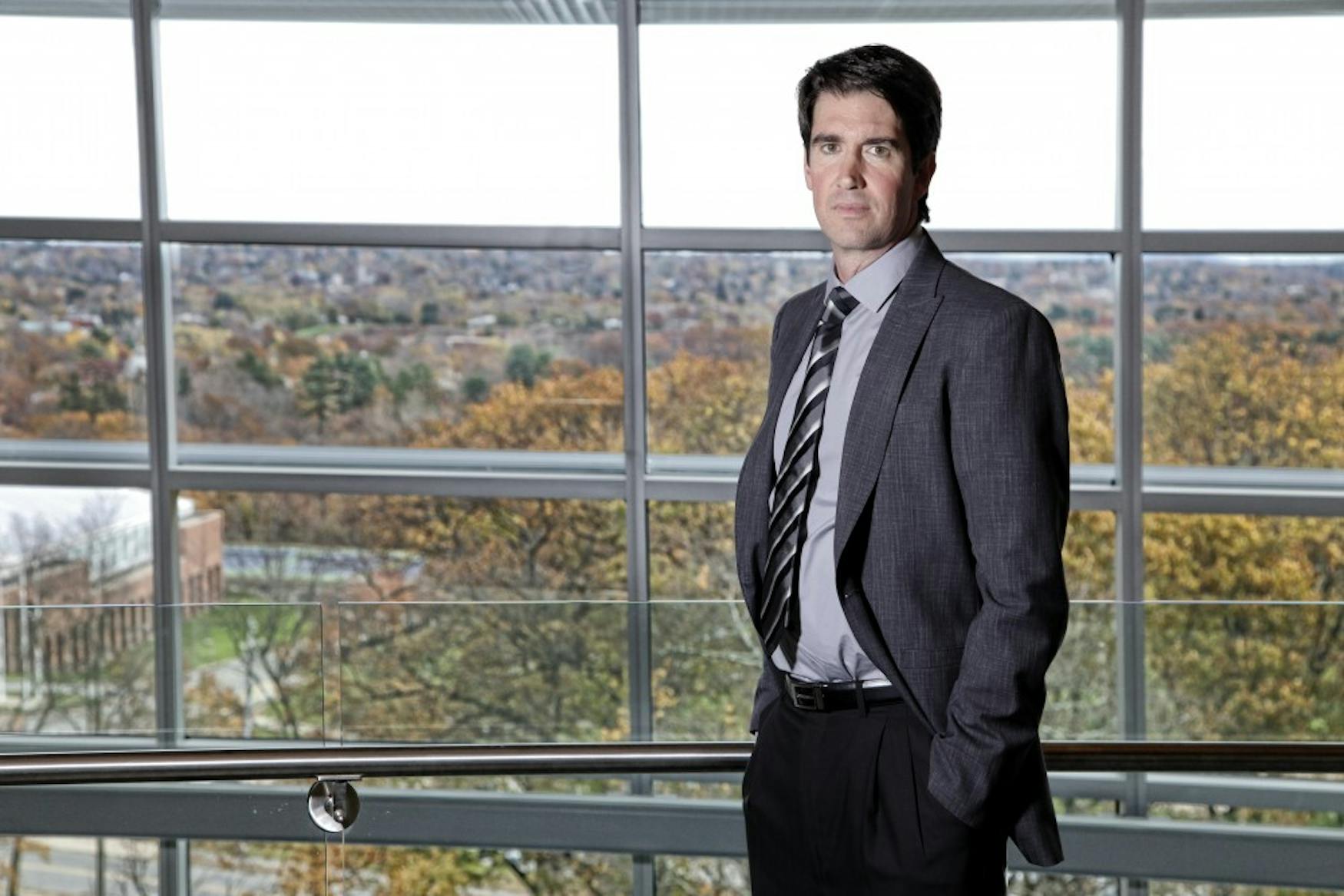Hey Siri, Tell Us About Your Creator
Adam Cheyer '88 created the original Siri prototype used by Apple
Clarification appended.
Next time you ask Siri a question, you can thank the Brandeis Alumnus who helped create it. Adam Cheyer ’88 is the creator of the original Siri prototype. Cheyer currently holds the title of co-founder and vice president of engineering at Viv Labs, an Artificial Intelligence company that was recently acquired by Samsung Group. He is also currently a vice president of research and Development at Samsung.
Cheyer graduated from Brandeis with a Bachelor of Arts in Computer Science. In an interview with the Justice, he spoke fondly about his college years and the multiple paths a liberal arts degree allowed him to pursue following graduation. He explained, “My interests were really understanding the miracle that is the human mind and how we do what we do. It’s so subtle and brilliant, and at Brandeis I could take not only computer science classes but philosophy classes, psychology classes, linguistics classes and sociology classes… I think if I had gone to just a technical school I wouldn’t have gotten such a well-rounded view during my exploration.” One class in particular captured his interest and imagination: a logic programming course taught by Prof. Tim Hickey (COSI). At a time when Cheyer felt as though he had already learned most of the computer science material and when he was certain there was nothing new to discover in the world of computer science, Hickey’s class become a source of amazement and helped rebuild his passion for programming. Cheyer said, Hickey “would take the most mundane subject I thought I knew inside and out … and then using his techniques which were so different to anything I had seen before he turned it into a magic trick … He basically kickstarted or re-kickstarted my love and interest in computer science. To this day I’m still seeking more of those miracles that he would show us every day.”
In 1993, five years after leaving Brandeis, Cheyer was working at SRI International — formerly named the Stanford Research Institute — where he and fellow researcher Phil Cohen began working towards a new goal for the technology industry. In a time before web browsers such as Google Chrome and Safari, the idea behind Cheyer’s work was to create a virtual assistant to help manage personal computer systems and act as a user interface. He described his vision, saying, “The assistant would help coordinate interactions with all the different computers around the world.” To this day, Cheyer is striving toward what he described as an “essentially Siri-run internet.”
Cheyer and his co-founders, Dag Kittlaus and Tom Gruber, received a phone call from Steve Jobs only a few weeks after they launched Siri as an app available in the Apple App Store. Cheyer and Gruber met with Jobs at his house to speak about the general future of their product and technology. Cheyer recalled, “[He] really, really had a desire. It was like a burning fire… You know, you think he’s a multi-billionaire, one of the best companies in the world, you think he could just relax a little. But he was not relaxed at all. He was driven, driven to succeed.” At their first meeting Jobs offered to buy Siri, but Cheyer and his team declined the offer. A month later, Jobs returned with another offer, demonstrating further interest. Eventually an agreement was made regarding not only the selling price of Siri but also how Siri would be implemented into Apple products. Siri would be at the forefront of devices and a part of users’ everyday interaction with their technology. Siri was officially launched a year later on Oct. 4, 2011, a day before Steve Jobs died of pancreatic cancer. After Siri was adapted by Apple, Cheyer worked for Apple for two and a half years, acting as the company’s director of engineering.
Cheyer spoke fondly of his time at Apple. He recalled, “I learned so much about the engineering process and kinds of iterative design. They’re obsessive about looking at every pixel from the conception of a project to fulfillment, they have an incredible process for caring about what the consumers are going to see and experience.” After an exhaustive five years, during which his projects ranged from co-founding the Siri Company along with another AI company called Sentient and also working as a founding member for Change.org (one of the world’s largest petition websites), Cheyer was ready to leave his position at Apple and take time off to rest and explore other projects.
In today’s world of conspiracy theories and caution toward technological advances, Cheyer said he was not all that concerned about the direction or future potential of AI. He explained that the current direction of AI is geared toward specific problem solving. Examples of such advances can be seen in self-driving cars or computers that play chess and diagnose cancer from medical images. All these functions require specific programing, but, as Cheyer said, “We have made almost no advance in general intelligence. A chess-playing program has no idea how to play checkers.” Although the world of AI continues to be of increasing interest, with more federal funding toward AI research than ever before, Cheyer asserts that there has been no real progression towards this sort of artificial consciousness or ‘intelligence’ that science-fiction makes us fear. Cheyer continues working today to discover more technological miracles in the future of AI.
—Editor's note: An earlier version of this article has been updated to correct the name of Cheyer's fellow researcher and to add the names of Cheyer's partners in reference to their meeting with Steve Jobs.



Please note All comments are eligible for publication in The Justice.